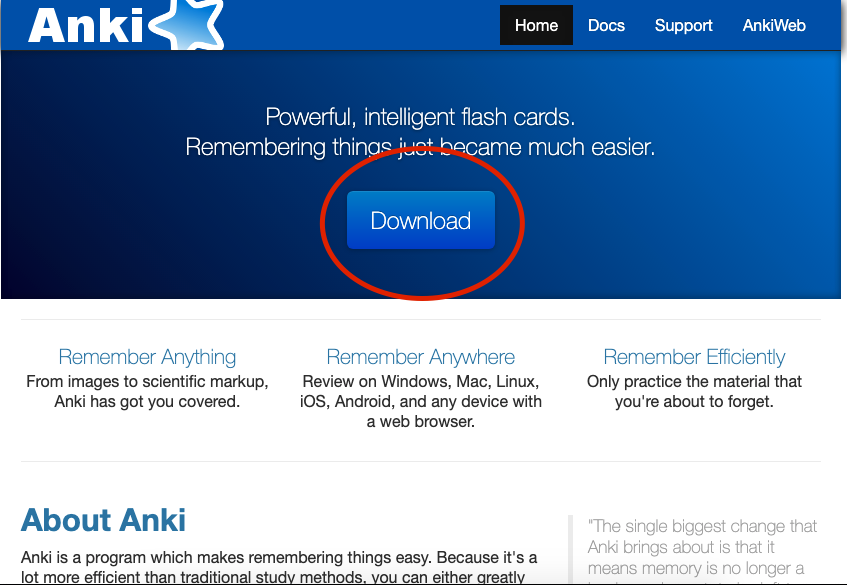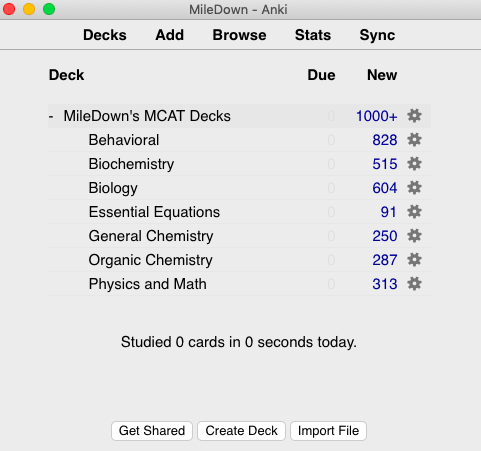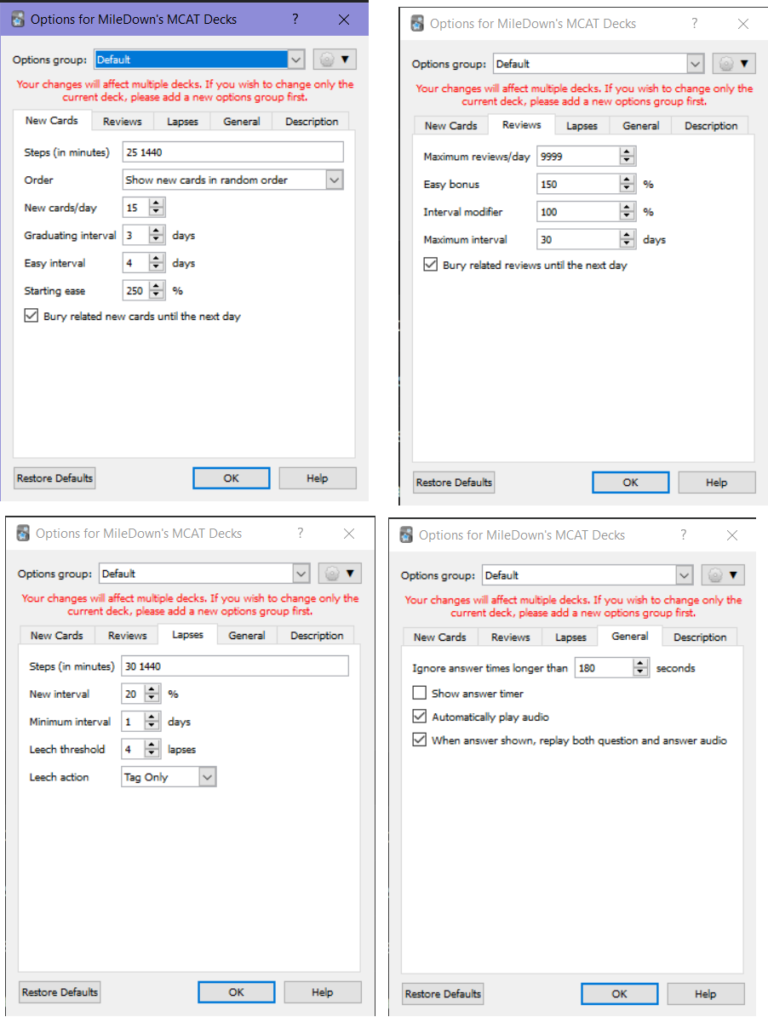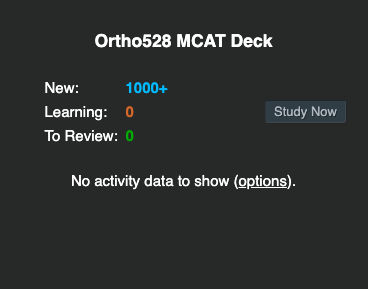Using Anki
What is anki?
Anki is a free desktop flashcards program that utilizes spaced repetition techniques to help you remember content more easily. This method of learning has been shown to be much more effective than traditional, Quizlet-style flashcards.
Anki basically should be used every day to learn new material, and also review old material that you’ve learned on previous days that’s been sorted using an algorithm based on how confident you knew the answer. Anki can be tricky to set-up and use, so if you would like an in-depth explanation of it please check out this Youtube playlist by The AnKing. He goes through how it works, what the settings mean, and some relevant add-ons.
The first thing to do is download the app onto your computer. Afterwards, watch THIS video to get a general idea of how Anki works and how you’re going to set it up (also by The AnKing). I’m going to highlight how to set it up down below as well. an additional helpful playlist is this one by Med School Insiders.


My favorite pre-made anki deck
While making your own flashcards is useful, many have already made excellent MCAT Anki decks. Downloading these onto your Anki can allow you to quickly start utilizing them for your content review (download after you already have Anki installed on computer).
The following pre-made deck is my favorite for the MCAT, as it is comprehensive and structured and organized well:
- MileDown’s MCAT Anki Deck
- Consists of over 2900 cards that comprise seven subdecks: Behavioral (P/S), Biochemistry, Biology, Essential Equations, General Chemistry, Organic Chemistry, Physics and Math
- Every card has a graphic/picture, along with a relevant Khan Academy/Youtube video. The cards are made in “fill-in-the-blank” format
- Every card is tagged with a hierarchical tag, to better browse individual topics. Download the Hierarchical Tags Addon to best navigate the tags
- Original Reddit post

adjusting the anki settings
This video is a part of The AnKing’s video playlist I linked earlier, however this one in particular is worth highlighting. The settings on Anki can seem confusing, however watching this video provides sufficient explanation on what each setting means and how they should be arranged. Down below, I show the settings I use for my own studying purposes. In general, you don’t want to do too many new cards a day, as with the daily review it can become overwhelming very quickly. Anki studying is meant to be everyday. Depending on the amount of days you have until your exam, and how big your deck is, I recommend doing 10-50 new cards a day (I do 15 new cards per 2-3 different subjects a day).
Using the MileDown deck as an example, you may want to separate each of the different topics into different “decks,” to study multiple different subjects a day at different intervals. By default, when you download the deck it is one “large” deck with seven different subsections. This means that if you have your settings for 15 new cards a day, after you do 15 new cards for Biology, you’re done; you can’t learn any more for the day even if it’s in a different subject.
To change this, watch how I separate the seven subsections and make each of them into its own “deck,” and thus I can study each of them independently from one another (for example, I can learn 15 new Biology cards. Afterwards, I can review 15 new Chemistry ones. The next day, I would review my old Biology cards and then do 15 more. Then, I would review my old Chemistry cards and then do 15 more).

To see my specific settings that I use, please look at this image. These settings are accessed by clicking the gear icon next to each deck. Please watch the above AnKing video to see what each setting means. Using these settings, I would learn 15 new cards a day per subject, and I would usually do 2-3 different subjects a day. Even if I chose to skip a day of learning new cards, I reviewed my old cards for every subject I started every day that was required.

Other good pre-made decks
Please look at THIS link for a compilation of many excellent pre-made Anki decks, along with general information about each of them. While I recommend the MileDown deck the most, there are some that desire a more comprehensive, intense deck, by incorporating information from the Kaplan books for example.
I recommend staying within the “Gold Tier” decks. Specific ones I like are:
- MCAT Behavioral Sciences Deck – An extremely thorough deck for the P/S section. The most comprehensive deck for P/S.
- Ortho528 Deck – More thorough than MileDown’s, but formatted in a less intuitive way. Incorporates content from various test prep books for B/B, C/P, and P/S
- Cubene’s Psych Deck – Another thorough deck for P/S.
- Coffin Deck V2 – a new Anki deck, and thus not in the compilation link. Check out the Reddit thread for specific details about it, but basically it’s EXTREMELY in-depth and incorporates information from the Kaplan books and parts of other thorough Anki decks
